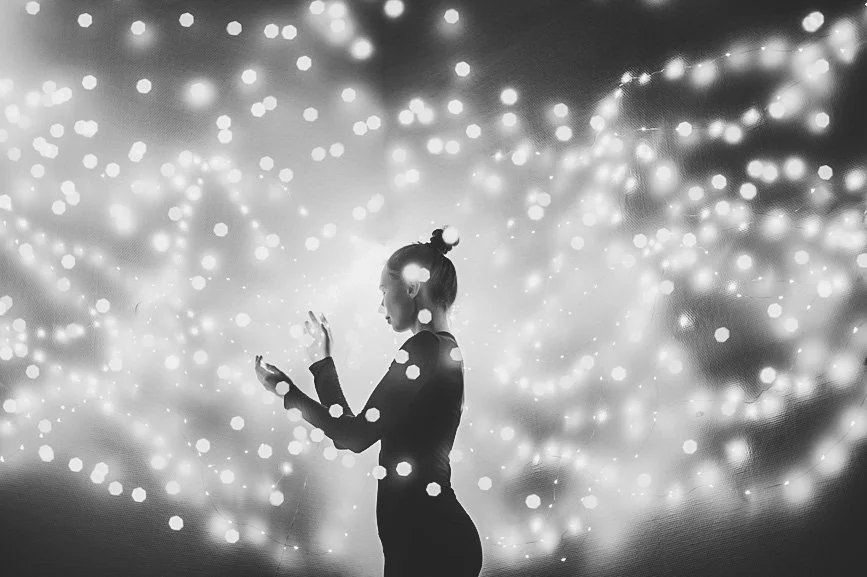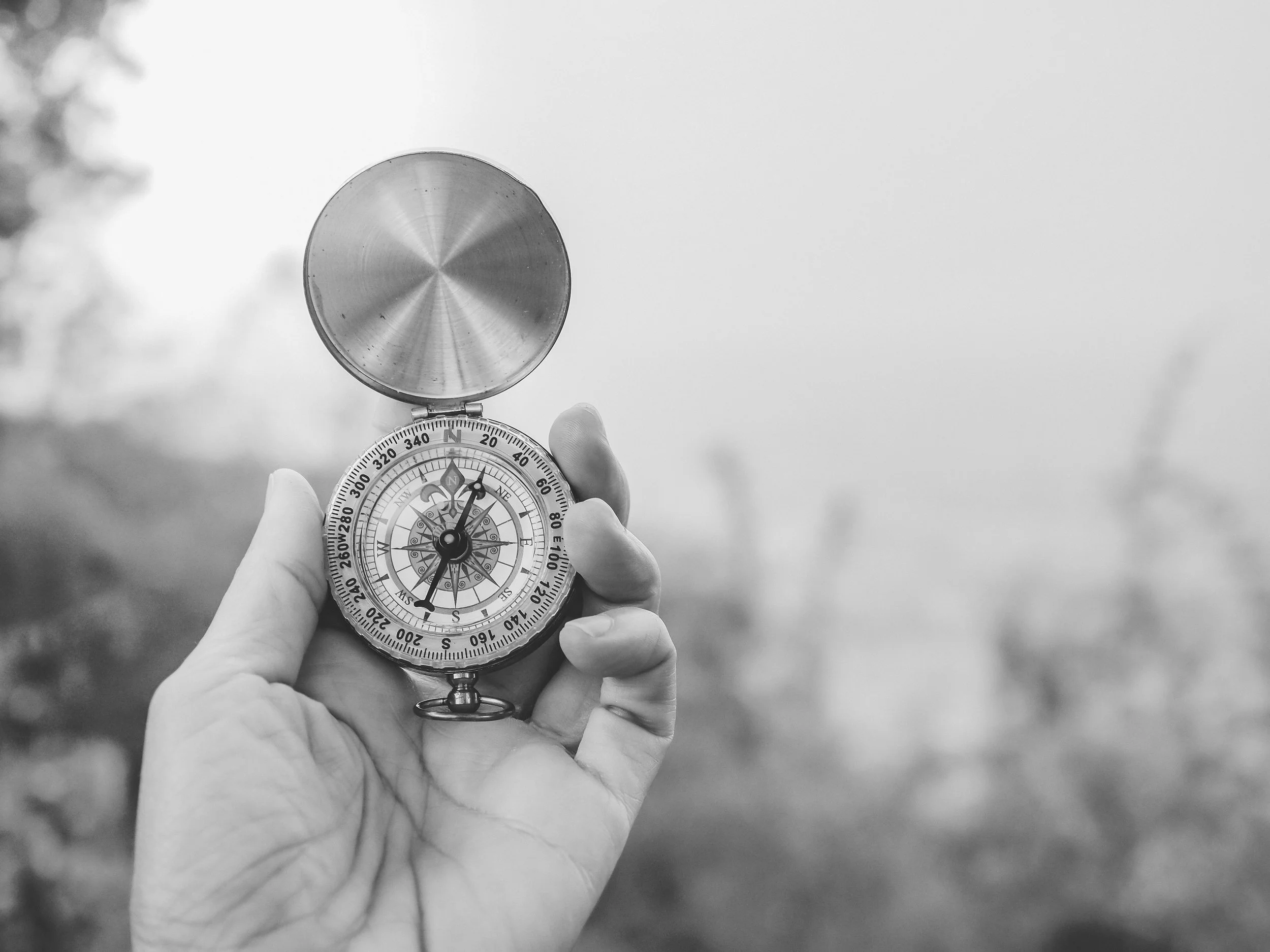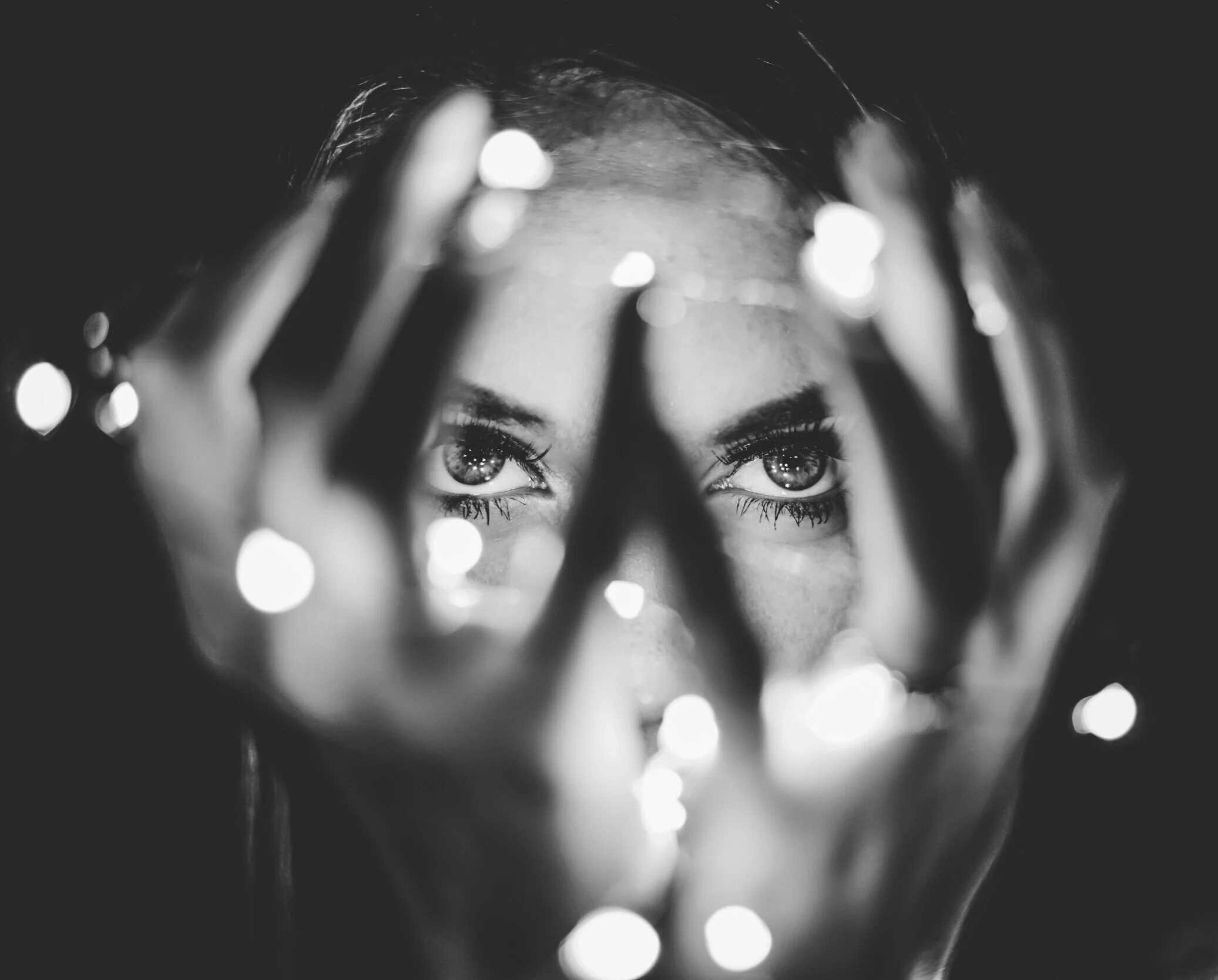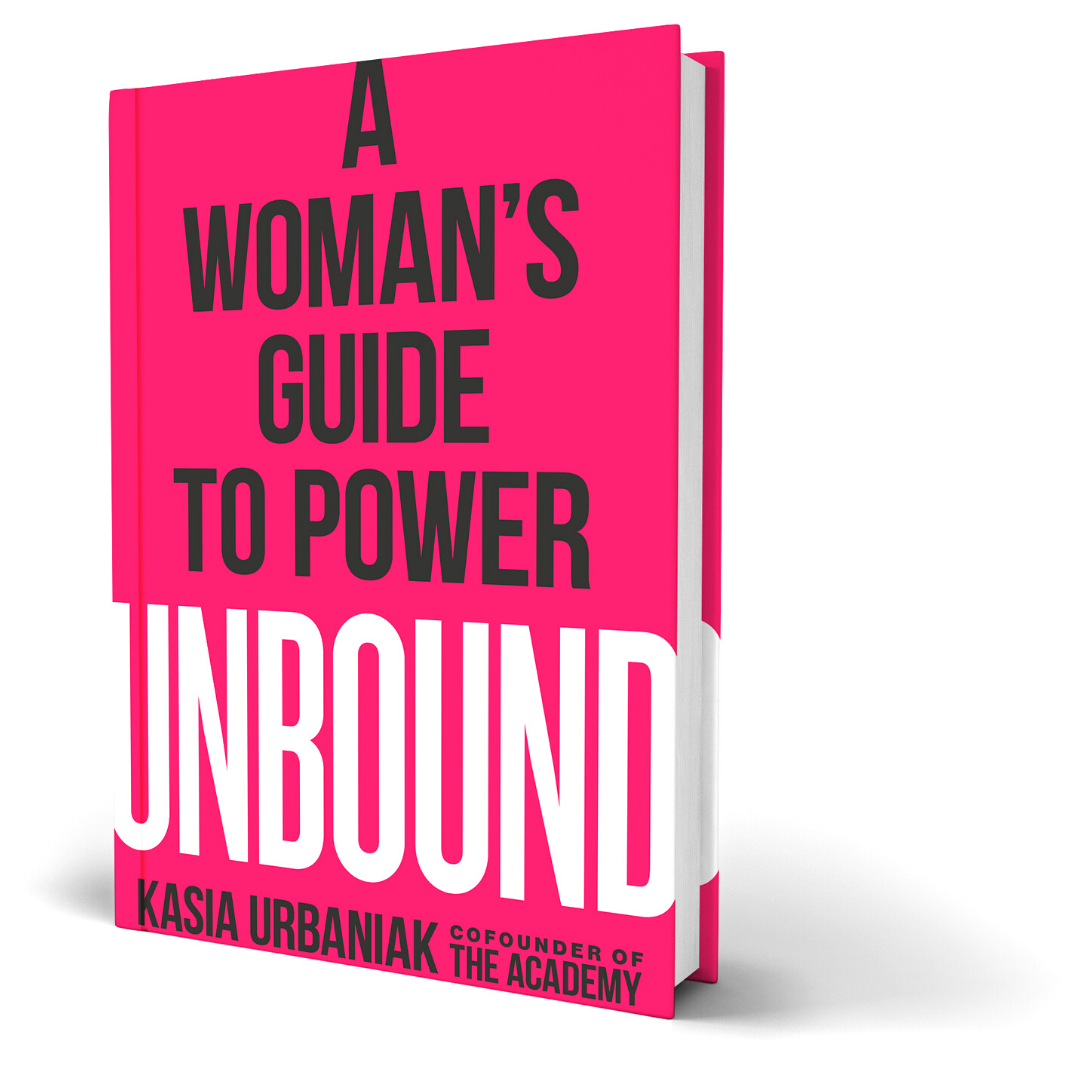Emotions are not taboo. They’re a gateway to power and influence
Emotions are not taboo. They’re a gateway to power and influence
Culturally there is a standing belief that emotions fuel non-rational behavior and devastate sound decision-making.
The common prescription?
Distancing oneself from one’s feelings or suppressing them altogether so that we can better process “information, facts and data" and make "clear-headed" decisions. This approach restricts our sense of aliveness to a small sliver of the human experience – that which can be processed intellectually.
We live in a world that’s top-down, outside in: what you think is more important than what you feel; if you can explain something, it means you understand it; external influences exert more power over individuals than their own internal desires.
But in divorcing intellect from feeling, we’ve laid the groundwork for a world that seems to “make sense” yet feel bad.
The consequences this has for the world are significant. The consequences for individuals as a whole, and women particularly, are nothing short of catastrophic.
Emotions into Power – Online Course
Through over 60 videos and practical assignments, learn the crucial skills of emotional alchemy that form the foundation of unshakable influence.
Policing of emotions and the ‘Good Girl’ trap
The prohibition against emotion is deeply ingrained in the ‘Good Girl Conditioning’ passed down to women through generations in order for them to become good wives to men.
For millennia, the only way for a woman to fulfil an iota of her own hopes and dreams was to marry well. And a good wife? She is modest, accommodating, doesn't cause a fuss; she is definitely not emotional and unruly. Good girl conditioning has left many of us with a habit of self-policing and attacking any thoughts or feelings that don’t comply.
When you attack yourself, you can’t trust yourself. An emotion is simply a message from you to you, and by allowing self-attack to force you to suppress a completely natural emotional response, you lose access to that emotion’s message and its power.
And that message can often contain clues to our most hidden desires or passionate life purpose. But how can we use those clues if, instead of honoring and making space for them, we suppress the tools which allow us to decode them?
When you attack yourself, you can’t trust yourself.
An emotion is simply a message from you to you, and by allowing self-attack to force you to suppress a completely natural emotional response, you lose access to that emotion’s message and its power.
What good is power if you don't know what you want it for?
Knowing what we want is our key to wielding power. Many of the women who come to the school have a deep commitment to change the outside-in world around them. Doing so is going to require an approach that’s upside-down, inside-out: celebrating and trusting what’s inside of us, and being led by our feeling-sense.
Theoretically, I’m sure this makes sense. But how do we even begin to work with emotions, especially with ones like anger, which good girls are definitely not supposed to feel?
If you’re going to engage in the process of making a difficult ask (you can read more about the powerful act of asking here) or enter into a difficult conversation, it might as well be for something you care deeply for. Make it something that is worth fighting for; something so meaningful that, whether you succeed or fail, it’s worth fully dedicating yourself to.
So how do you work out what you really want?
You’re going to need full access to your emotions as your fuel and as part of your internal compass.
Working with the natural arc of emotions
It is considered totally normal to say or think: “I should not be feeling this way.” But because it is so common, we are lost to the degree of absurdity in this phrase.
“Should not feel” is a concept that exists only in language. It doesn’t correspond to anything in reality. When something arises, it exists. It is there, and to say that it should not be disconnects us from the simple reality that it does.
Because what happens when the most pesky and taboo emotions completely hijack your system? What happens when those emotions do not go away through meditation after meditation and when you’re feeling something you don't want to be feeling?
Consider the possibility, as counterintuitive as this is, of welcoming and celebrating our emotions as they arise. Welcome sadness. Welcome envy. Welcome worry.
To truly decode and use the power of our emotions, we must welcome the natural arc of their changing state, in all its uncomfortable, confusing glory. Instead of suppressing them, interrogate them.
Ask them,“What have you to show me today?”
Beyone being a source of vitality, energy and fuel, our emotions are also our compass. Explored deeply enough, they point towards our desires: the things we most deeply want.
The powerful, life-changing truth about rage
Let’s explore the natural emotional arc of one of the most taboo and antisocial emotions there is: rage. Good girls are never angry. Oh, but what about when they are?
Right now, you have plenty to be angry about. So it's never been more important to know how to convert your anger to serve you and the people and things you care most about. Rage is the emotion that generates the most energy in your body. When we tamp down on anger, we inadvertently suppress the natural energy supply of our bodies.
This explains why anger won’t just ‘go away’. If it’s not welcomed and transformed, anger simply gets squeezed into spots it doesn’t belong, until it leaks out as passive aggressive poison darts, or implodes like a suicide bomb, hurting us and others at same time.
Anger has so much energy, it has to find a purpose. It has to have a role. Deny the existence of anger, and it digs in deep to find a place to lie in wait. Resignation, numbness and apathy are not the absence of emotional impulse; they are the most muffled form of rage.
Never once have I seen a student in class carrying rage or even the most vengeful wrath that didn't have life and love in it, and didn't eventually reveal a vision worth fighting for.
Because you don't get angry about things you don't care about. You don’t get furious just for the hell of it. You get angry because that anger exists to protect something you care deeply about.
As long as anger is disapproved of, tied down and denied its energy, there’s no space for the love to emerge.
Emotional alchemy between rage and passion creates purpose. Deny one, and you deny the other.
You'll have heard the phrase "there is a thin line between love and hate" before, but perhaps rarely sought to explore it. When we sit with our emotions, amazing transformations take place. Through emotional alchemy, rage becomes passion. Fury ignites fire.
Behold the natural cycle of rage to passion:
Stage One: A state of numbness, like a limb that’s fallen asleep after being compressed. Symptoms include fatigue, listlessness, and a diminished vitality of imagination and health.
Stage Two: The pressure is released on the limb, and it starts waking up! Here come the pins and needles. This anger feels hot, stinging and reckless. Just as a waking limb burns but is ultimately still useless, stage two anger is unwieldy, chaotic and uncomfortable.
But this messy middle phase is where the transformation can happen – if we choose it. Because if we have a limb that’s half awake and half asleep, we want to end the pain – but not at the price of being left with a numb limb forever. Yet every time we throw water on the process by suppressing or shutting down the anger, that’s what happens. We can cycle back and forth between stage one and stage two forever, with the unaltered anger exhausting us.
But, when we can honor the part of us that’s in pain, that’s when we can begin to see the love within the rage.
Stage three: Now that we have satisfied the source of the pain –what we’re fighting against – we can start to recognise the vision of what we’re fighting for. A desire for change. A desire for something better. Moving from fighting against to fighting for is the difference between pounding your fists against a wall and being able to leap over the wall in the direction of a new vision.
Often that vision is intimidating. It seems impossible. But when we follow the natural arc of an emotion to its conclusion, we can access the massive energy that's right there to serve it.
Rage is destructive, passion is constructive. Emotion is not weakness. It requires enormous strength to express and sit with an emotion long enough to convert it and use it as a fuel, rather than leaving it to eat us alive.
A woman’s rage transformed into passionate life purpose? There’s no match for that.
When we take what’s inside us and create the world outside us, that is true power.
Here’s what we know about the outside-in way of doing things:.
The prohibition of expressing anger hasn’t stopped violence.
The prohibition of expressing sadness hasn’t stopped depression.
Instead, the prohibition of any taboo emotion has not only prevented mastery of that emotion, but it creates a stigma whereby the nicest, kindest people are the victims. Afraid of hurting someone else, they end up doing the toughest job on themselves.
Unlearning the Pandora’s Box response to powerful emotions
We’ve been conditioned to believe that our emotions are dangerous – a veritable Pandora's Box that, once opened, will unleash destructive forces. Yet, the tragedy of Pandora's Box is not that she opened the box, but rather that she closed it when there was only one thing left: hope.
Celebrating an emotion and remembering that their vitality makes us feel alive is the first step towards leaving the box open long enough that the good within can make its way out.
This is an inside out school in an outside-in world. When we can take what's inside of us and create the world outside of us, THAT is true power.
And that is why we begin with emotion.
When we can take what’s inside of us and create the world outside of us, THAT is true power.
Emotions aren’t the obstacle to power and influence. They are the source of it.
Emotions into Power is a brand new online course taught by Kasia Urbaniak.
With over 60 videos and practical assignments, this course is a transformational journey that will teach you the crucial skills of emotional mastery that form the foundation of unshakable influence.
Registration is now open!
Throughout centuries, women have been trained to give away their power.
The Academy teaches women to take their power back.
Watch Kasia’s TED Talk, ‘One Simple Trick to Reclaim Your Power’.
Get your first free video lessons – The Keys to Power – from Kasia here.




